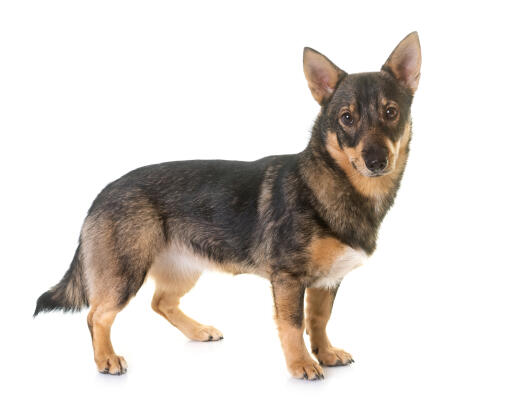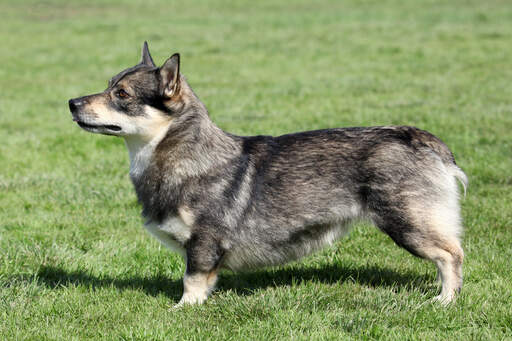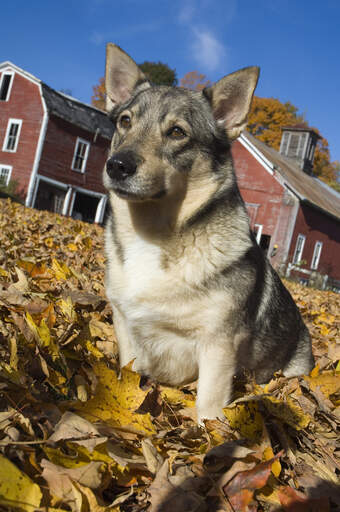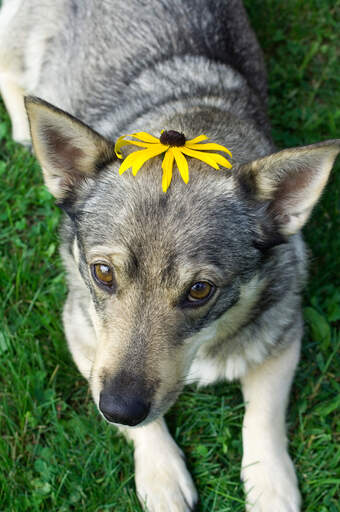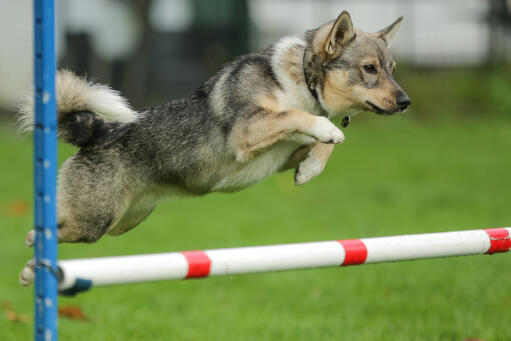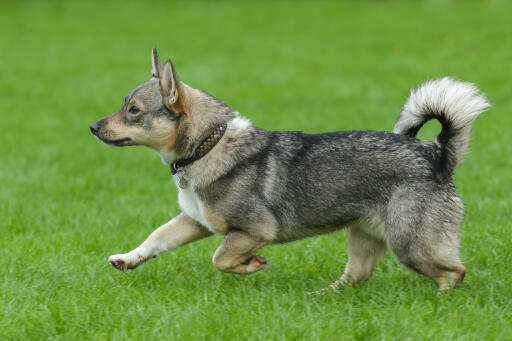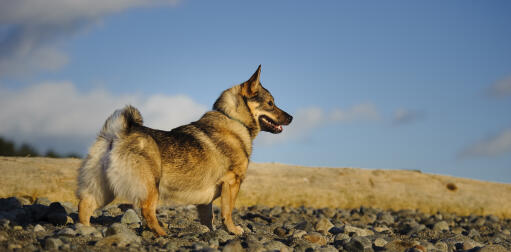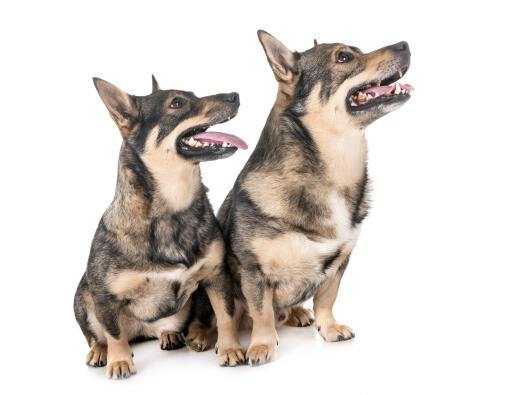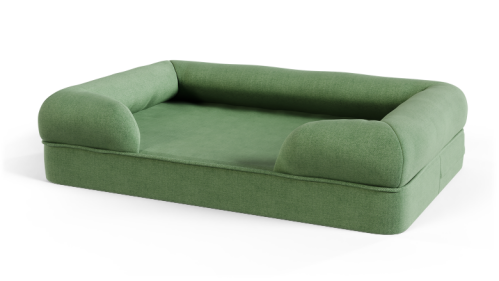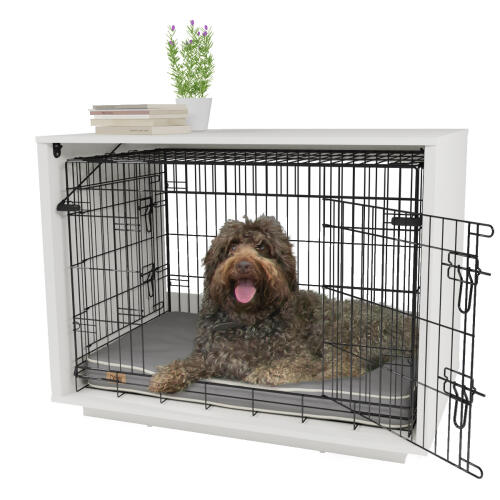Svensk Vallhund








History
Swedish Vallhund dates back to the 8th/9th century where it was used by the Vikings as a herding dog for cattle and watch/guard dog. It is referred to as a 'heeler' as it would nip at the heels of cattle to get them to go where it wanted them. Believed to be the breed stock for Corgis and Lancashire Heeler, the breed isn't that well known outside of Scandinavia. It is also known as the Swedish Cattle Dog and is related to the Spitz family.
Behaviour
The Vallhund is a fearless companion who is happiest when surrounded by family. They do well with children, but some can nip at their heels to get them moving. They like people to be close to them and can sometimes try and herd the family together as it is part of their breed nature. They make good watchdogs and will bark when someone comes to the door, but are usually friendly with strangers if accepted by the family and can live with other pets if introduced form an early age. They are described as a big dog in a small package and can be very vocal and protective if they need to be. They are fun loving and full of energy. They like to act the fool and be the centre of attention at times, but seeing them work in herding, agility or any form of competition is when they come into their own. They are a joy to watch and are very good at what they do. Training needs to be started early and they don't respond well to harsh training. Firm, yet kind and playful is the best way to be. They are intelligent and keen to learn, so that takes most of the hard work out of it. They have an appetite for learning and become bored quite quickly so short training sessions work best to get the most out of them. They need lots of exercise and will happily jog along next to you or explore on a long walk or hike. As long as they are with you, they are at their most content, but their small size does not mean they are just happy to be sat at home. They need to be out and about often to prevent boredom. Vallhunds make good therapy dogs and love the attention they receive. They do tend to bark a lot, but teaching the 'quiet' command early on should stop problems.
They rarely suffer problems health wise, but sometimes they can develop Retinopathy. Their long backs can sometimes play up. They have a think double coat which needs a decent brush once a week to remove dead hair.
Temperament
Swedish Vallhunds have a watchful and alert temperament. They are agile dogs who move with nimble speed for a breed with short legs. They are working dogs who enjoy whatever challenges are set before them before coming home to a nice warm bed. Companionable and loving the Vallhund is a good watchdog but also friendly and polite to almost everyone they meet.
Health Problems
Health problems that may affect the Swedish Vallhund include canine hip dysplasia (CHD), elbow dysplasia, luxating patella (dislocation of the knee cap), heart disease, allergies and mild eye problems.
Breed Details
- Status: Common
- Life Expectancy: 12 - 14 years
- Weight: 9 - 14 kg
- Højde: 11 - 12"
- Rare: Nej
- Coat: Lavt
- Grooming Requirements: Once a week
- Town or Country: Either
- Minimum Home Size: Small House
- Minimum Garden Size: Small to Medium Garden
- Breed Type: Herding
- Størrelse: Medium
- Energy Level: Høj
- Exercise Required: Up to 1 hour

